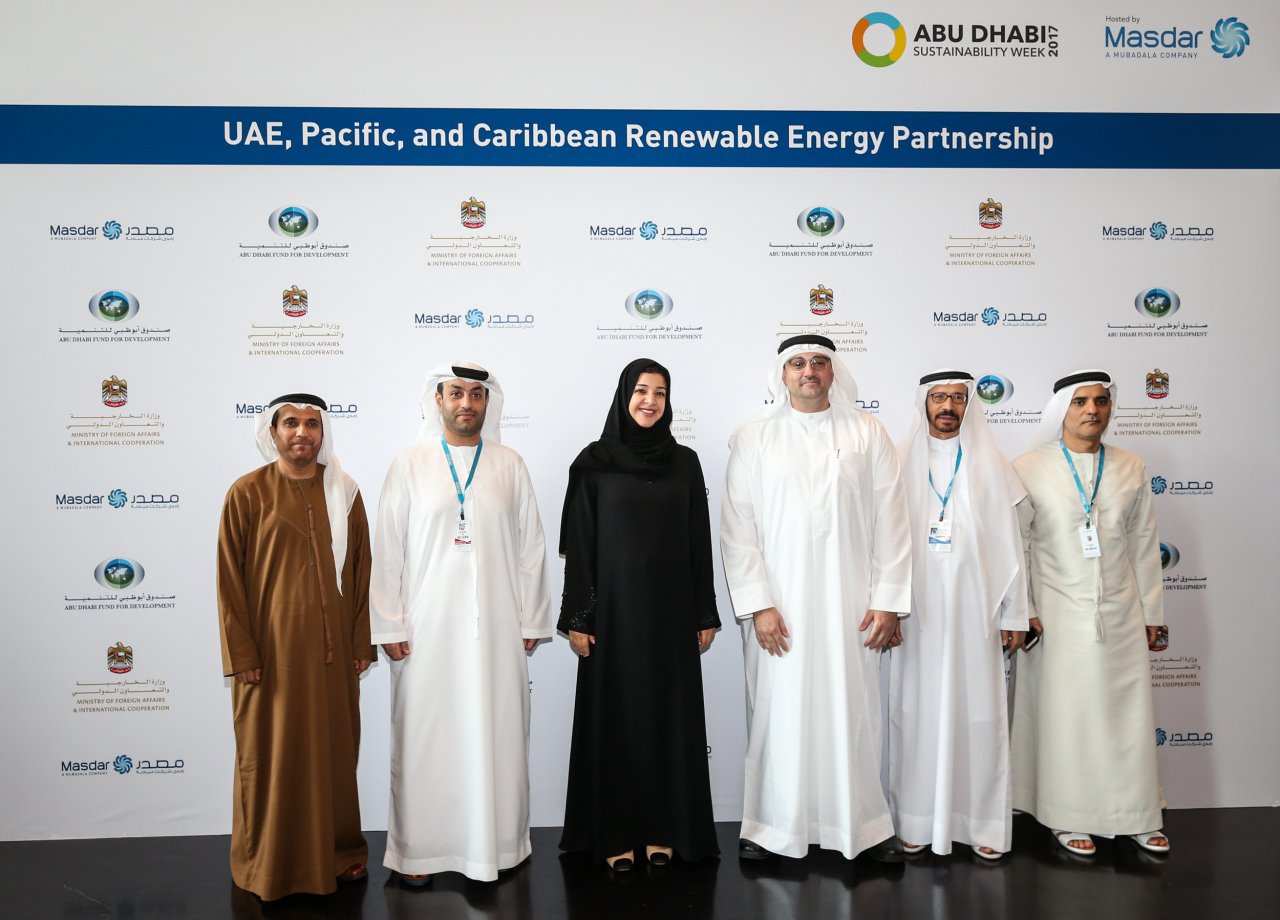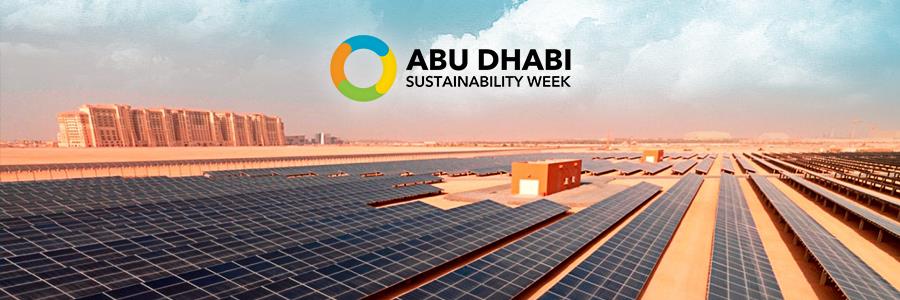Abu Dhabi Fund for Development, ADFD, and Abu Dhabi Future Energy Company, Masdar, held a panel discussion entitled ‘Renewables making waves in the Pacific: A new humanitarian model?’ that highlighted the success of the UAE-Pacific Partnership Fund, UAE-PPF.
Held during Abu Dhabi Sustainability Week 2018, the session offered a fascinating glimpse into the role of aid in modern-day global economy – a role that transcends the traditional investor-donor relationship to build mutually beneficial partnerships in mitigating climate change and drive productive collaboration in renewable energy innovation.
The panel discussion saw a government representative from the Marshall Islands, representing the beneficiary countries of the UAE-PPF, give a first-hand account of the lasting positive impact of the programme. The panellists also included Adel Al Hosani, Director of the Operations Department at ADFD, Khaled Ballaith, Director Special Projects at Masdar, and Dolf Gielen, Director of Innovation and Technology Centre at the International Renewable Energy Agency (IRENA).
Sultan Al Shamsi, Assistant Minister of Foreign Affairs and International Cooperation for International Development Affairs said, “The UAE-PPF is an excellent example of the UAE’s capacity to provide solutions to the most pressing development challenges, especially in areas prone to climate change challenges, like the South Pacific. The UAE-PPF delivers clean energy to partner countries, thus meeting a fundamental element of sustainable development.”
He added, “The UAE-PPF resulted in positive yields, including increasing the national budgets of partner countries, preserving a carbon-free environment, enhancing growth potential in other sectors, and decreasing the cost of the fuel. This last point is particularly important as energy costs in the South Pacific rank among the world’s highest. As a result, the savings are transferred to other sustainable development projects. The UAE is using the best practices from the UAE-Pacific Partnership to create a model for delivering clean energy to Small Island Developing States (SIDS) and beyond, beginning with a new partnership fund for Caribbean countries.”

Speaking on the occasion, Mohammed Saif Al Suwaidi, Director-General of ADFD, said, “In addition to celebrating great renewable energy achievements in the Pacific island countries, the panel examined the unique lessons learned and ways of applying them on a grander scale.”
He added, “In line with its mission of promoting sustainable development through providing effective aid in collaboration with relevant entities, ADFD believes that renewable energy is a catalyst for socio-economic development. With easily accessible funds, the sector leads the way in innovation and creating job opportunities. The Fund is proud to have allocated more than US$450 million to renewable energy solutions to date.”
Launched in 2013 by H.H. Sheikh Abdullah bin Zayed Al Nahyan, Minister of Foreign Affairs and International Cooperation, the UAE-PPF – financed with US$50 million from ADFD – successfully completed 11 projects in 11 Pacific island countries. The programme has brought a total of 2.8 megawatts of renewable energy capacity online and replaced approximately 3.2 million litres of imported diesel fuel. The combined output of the projects implemented through the fund has saved US$3.7 million per year in fuel costs – based on 2015 diesel prices – and eliminated approximately 8,450 tonnes of carbon dioxide emissions annually.
Inspired by the success of the UAE-PPF, the Ministry of Foreign Affairs and International Cooperation, in partnership with ADFD and Masdar, is leading the deployment of renewable energy projects in 16 Caribbean countries. Formally launched during Abu Dhabi Sustainability Week 2017, the UAE-Caribbean Renewable Energy Fund – the largest renewable energy initiative in the region to date – recently announced new projects in seven countries as part of its second cycle of funding.
Original source: The Gulf Today
Published on 17 January 2018

